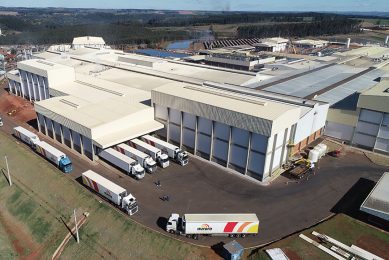What makes a good pig manager?
Over the past 15 years I have been privileged to sit in discussion with some very impressive and successful pig farm managers. One can learn much from successful people in all walks of life, and once I left the farm I made some notes and recorded some of their verbatim comments. I opened this file when I wrote last month’s blog on ‘Who takes vital decisions on the pig farm?’
Over the past 15 years I have been privileged to sit in discussion with some very impressive and successful pig farm managers. One can learn much from successful people in all walks of life, and once I left the farm I made some notes and recorded some of their verbatim comments. I opened this file when I wrote last month’s blog on ‘Who takes vital decisions on the pig farm?’
Most managers were over 45 years old and had 20 years or more experience of pigs. As individuals all were quite different personalities, but what was common to virtually all of them I list below.
1. They were all good planners
Managing pig flow and managing work flow – equally important. Daily meetings held with key staff and weekly meetings with all staff, at which clear instructions were given for the week ahead. All workers had clear job responsibility sheets, including their own health and safety, emergency drill, the farms legal responsibilities and veterinary updates.
2. Monitoring progress
“You cannot manage what you don’t measure,” is what I often heard. The bigger farms had a full-time recorder and the smaller farms hired a recorder for two sessions a week. “Free the workers to concentrate on what they are good at – looking after the pigs.” The weekly get-togethers were used for checking the accuracy of input collection and the manager interpreting the week’s progress to the staff. Computerised records, of course, with frequent use of a bolt-on predictive ‘what if?’ facility. “I don’t often use it, but I need to know what is possible/likely.”
3. Buying and selling
Some liked it, others suffered it, but all agreed that regular telephone and personal contact with suppliers and prospective buyers was essential. All were skilled negotiators, knowing how far to go and when to concede. “Never give up anything without getting something in return.”
4. Motivating staff
Some managers were tough, some friendly, but all aimed to be seen as fair. “Ask about their families and their out-of-hours interests/hobbies,” I heard frequently, just as “Create a team spirit.” Occasional, i.e. annual, ‘socials’ with staff family members, including the owner’s family, all paid for by the company, were suggested. As for checking on things, “be in the right place at the ‘wrong’ time.” Then guide and encourage. “Don’t bawl people out; explain, but don’t patronise.”
5. Passionate about pigs?
Surprisingly – not always! More interested in business management, cost control and getting value for money. “Farm for the most underprivileged pig on the farm, and for the least committed worker.” So, how much thinking/planning; how much supervising/ tail chasing? About 60:40 seemed to be the split.
6. Self-training
“As a general rule the most successful man in life is the man who has the best information,” said Benjamin Disraeli, British Prime Minister 1874-1880. “I make time to secure that information,” one manager told me.
I relished that remark, as it is where Pig Progress scores!











